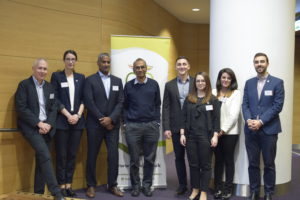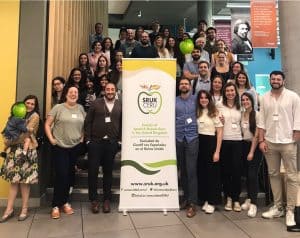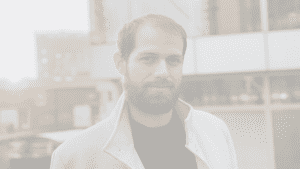- The Society of Spanish Researchers in the UK (SRUK/CERU) organizes today a roundtable with speakers who share a wealth of knowledge relating to Brexit at the Francis Crick Institute in London.
- The event has gathered information about the possible changes in the funding sources for R&D, the importance of scientific collaboration, and the mobility difficulties that researchers might have to face after Brexit.
- Sir Venki Ramakrishnan, president of the Royal Society, highlighted that “The future rights of EU citizens is a big concern. We need to make the process of the right to stay in the UK efficient, transparent, and fast. We also want its cost to be proportional to the stay”.

London 25th October 2018, The outcome of Brexit for the research system is one of the main concerns for researchers working in the UK. With the aim to discuss how the final agreements might influence research, the Society of Spanish Researchers in the UK (SRUK/CERU) organizes today a roundtable with speakers who share a wealth of knowledge relating to Brexit at the Francis Crick Institute in London.
Brexit has been part of the everyday conversations among researchers in the UK since its announcement in June 2016. Today, researchers from different fields have gathered at The Crick Institute in London to discuss how Brexit might affect the research system.
The event was divided into three sessions, each one focused on a specific area within the research system which future after Brexit seems to be unsure: which sources of funding for R&D will be available? Will the scientific excellence in the UK be affected? What about the effect on the amount of scholarships and the mobility programmes for researchers?
The meeting was opened by Dr. Sam Barrell, Chief Operating Officer at the Francis Crick Institute, Mr. Miguel Oliveros, Minister Counsellor for Cultural and Scientific Affairs at the Spanish Embassy in the UK, and Dr. Rocío Guadioso, Vice-President of the SRUK-CERU. According to the survey results gathered by the SRUK, “only 14% of the SRUK members would now move to the UK in the current circumstances. This is corroborated by 65% of the Spanish researchers living outside the UK. Results are consistent across research areas”.
“Despite being aware of the benefits of being in EU funding programmes, Innovate UK are already looking for alternative collaborative partnership programmes both globally and with specific countries”, said Dr. Sivasegaram Manimaaran, Head of the European and Global Portfolio at Innovate UK (UKRO). According to Dr. Manimaaran, this means that engaging the UK in EU-funded research, the main goal at UKRO, could be compromised after Brexit if a proper deal for R&D funding is not reached. “We help our companies to access the international market, thus a significant funding goes to innovation. We believe that a strong investment on both innovation and access to a global market can help the UK to leave an important footprint on research, knowledge, and commerce”, the Head of the European and Global Portfolio at UKRO concluded. Sir Venki Ramakrishnan, president of the Royal Society, points out how a lack of funding could strongly affect the quality of the research carried out in the UK: “Europe reversed decades of decline by coming together and this is not a good time to try and break apart. This is not a time when we can afford to drop the ball when it comes to excellence in science”. Furthermore, Sir Jim Smith, the Wellcome Trust Director of Science, highlighted that “The EU did a terrific job funding R&D. They made sure that EU science would be competitive and prestigious, and we need to remember that”.
The uncertainty about the final agreement that needs to be reached by 11pm on the 29th of March 2019 is clearly influencing the points of view towards the future of research after Brexit. “Our concerns about scientific barriers that we share and discuss during coffee time could be written down and sent to the key policy makers. However, we should also think about ourselves and the research that we want to do”, added Dr. Patricia Barral, group leader at the Francis Crick Institute. Dr. Barral’s concerns are also expressed during the roundtable by most of the attendees who have had their research funded by the European Union. We should not forget that “The young researchers we recruit today will be the ones that will train the next generation. We rely on flexible funding from multiple sources to achieve this”, in Sir Jim Smith´s words.
The final debate seems to agree with the fact that the source of funding is a crucial turning point for research, and that EU-funded projects have contributed to increase the quality, as well as the quantity, of research in the UK. Therefore, both speakers and debaters concluded that a lack of EU-funded research would negatively impact the research in the UK, thus urging this topic to be discussed and resolved before Brexit.




